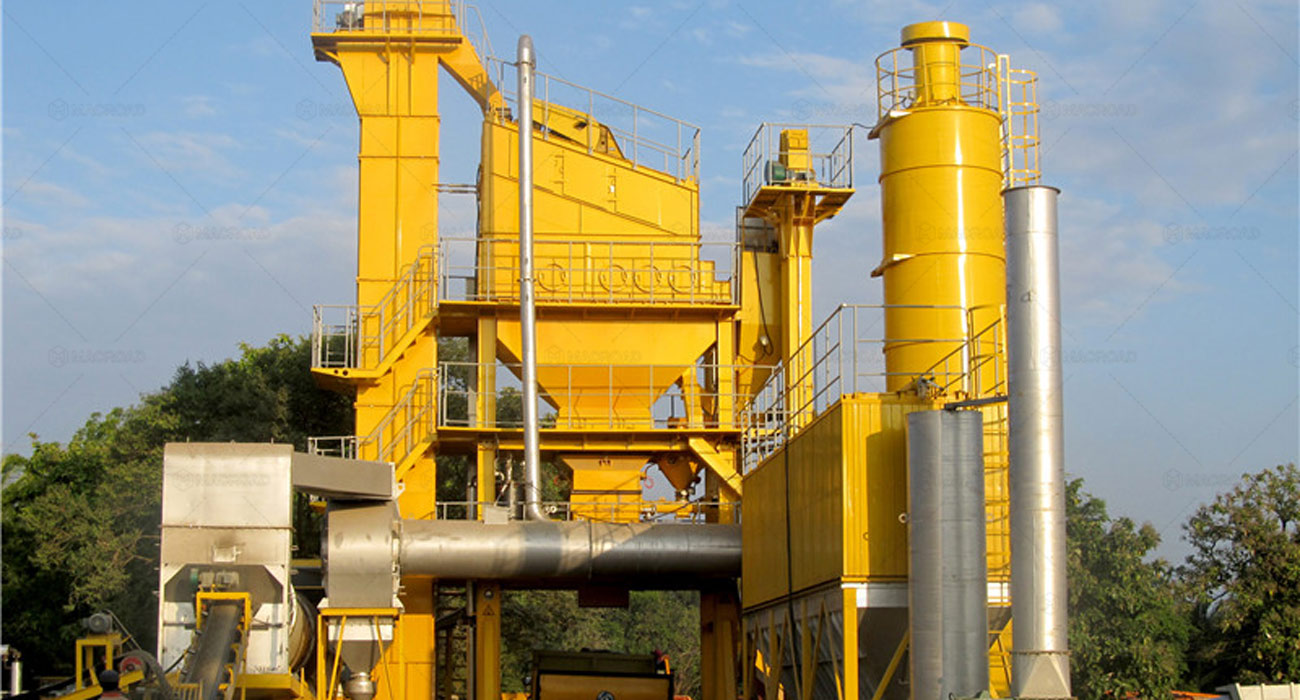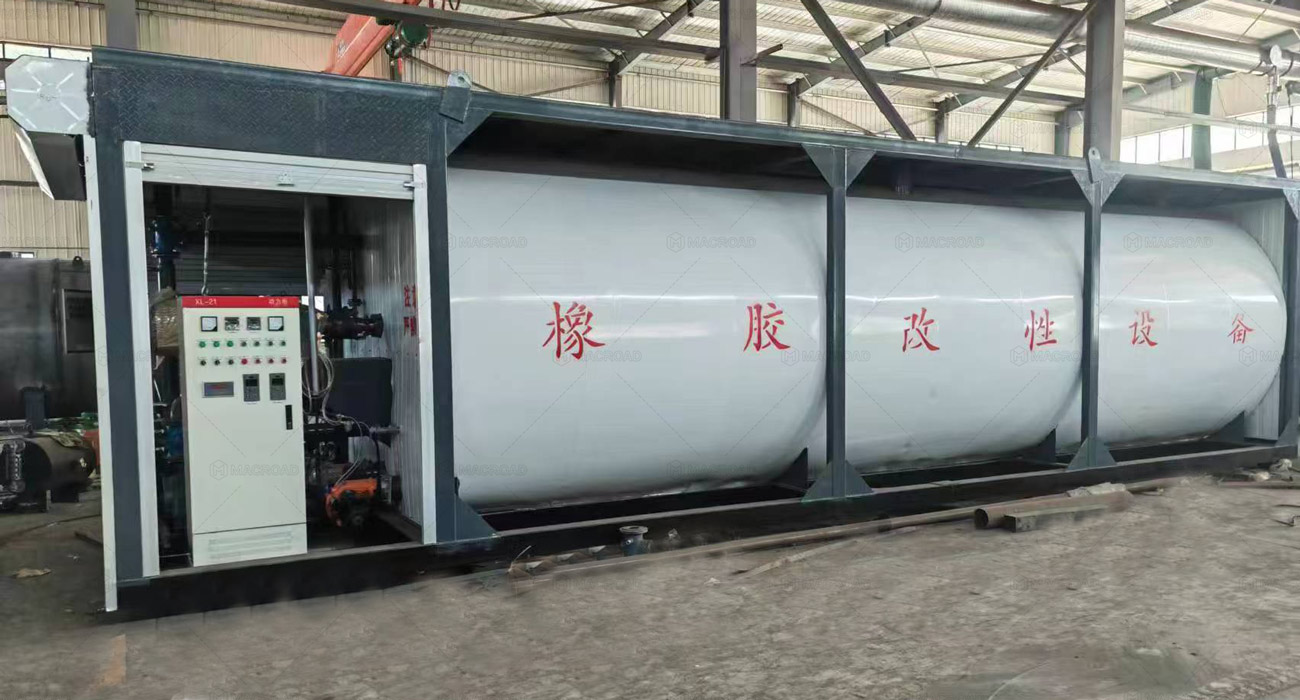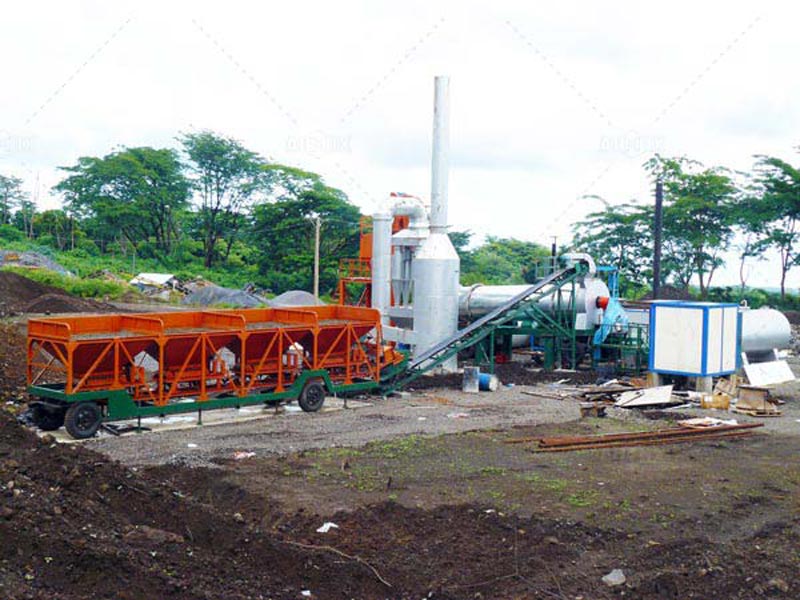As the demand for sustainable construction practices grows, the integration of modified asphalt production plants with asphalt recycling plants has become essential for enhancing the performance of recycled asphalt. This synergy allows for the effective processing of recycled materials, ensuring they meet the stringent adhesion and durability requirements for high-grade roads. This article explores how Macroad designs this collaboration, particularly when dealing with recycled asphalt that has high aging degrees.

The Role of Modified Asphalt Production Plants
Modified asphalt production plants play a crucial role in adjusting the properties of asphalt through the use of additives. These additives enhance the viscosity and overall performance of the asphalt, making it more suitable for high-stress applications. When recycled asphalt is processed, especially from older materials, it often suffers from a loss of quality due to aging. This is where the capabilities of the modified asphalt production plant come into play.
By incorporating specific additives tailored to improve the characteristics of recycled asphalt, Macroad ensures that the final product meets the necessary performance standards. The ability to modify the asphalt’s viscosity allows for better workability and adhesion, which is critical for high-grade road applications. This targeted approach not only enhances the quality of the recycled asphalt but also expands its usability in various construction projects.

Integration with Asphalt Recycling Plants
The asphalt recycling plant is equally important in this integrated process. Its primary function is to crush and preheat old materials, preparing them for reuse. This step is vital as it helps to break down the aged asphalt and make it more amenable to the additive treatments applied later in the modified asphalt production plant.
Macroad designs its asphalt recycling plants with advanced technology that effectively handles various degrees of aging in recycled asphalt. By employing preheating techniques, the plant ensures that the old materials reach optimal temperatures, which facilitates better mixing with the additives. This collaboration between crushing and preheating prepares the recycled asphalt for the subsequent modifications, ensuring that it retains its integrity and performance capabilities.

Ensuring Quality and Performance
The ultimate goal of integrating modified asphalt production plants with asphalt recycling plants is to produce high-quality recycled asphalt that meets industry standards. When processing recycled asphalt with high aging degrees, the collaboration must ensure that the end material possesses the requisite adhesion and durability.
Macroad achieves this by continuously monitoring and adjusting the processes within both plants. By utilizing real-time data analytics, the company can make informed decisions about the types and quantities of additives used, as well as the preheating temperatures required for specific batches of recycled asphalt. This level of control ensures that the final product not only meets but often exceeds the performance requirements for high-grade roads.
Moreover, the integration allows for a streamlined workflow, where the recycling plant feeds processed materials directly into the modified asphalt production plant. This close coordination reduces the risk of material degradation and ensures a consistent output of high-performance recycled asphalt.
In conclusion, Macroad effectively integrates the technical features of modified asphalt production plants with asphalt recycling plants to enhance the performance of recycled asphalt. By focusing on the unique characteristics of both systems, particularly when dealing with high-aging recycled materials, the company ensures that the final product meets the stringent demands of modern road construction. This innovative approach not only supports sustainability efforts in the industry but also contributes to the creation of durable and reliable road surfaces that stand the test of time.